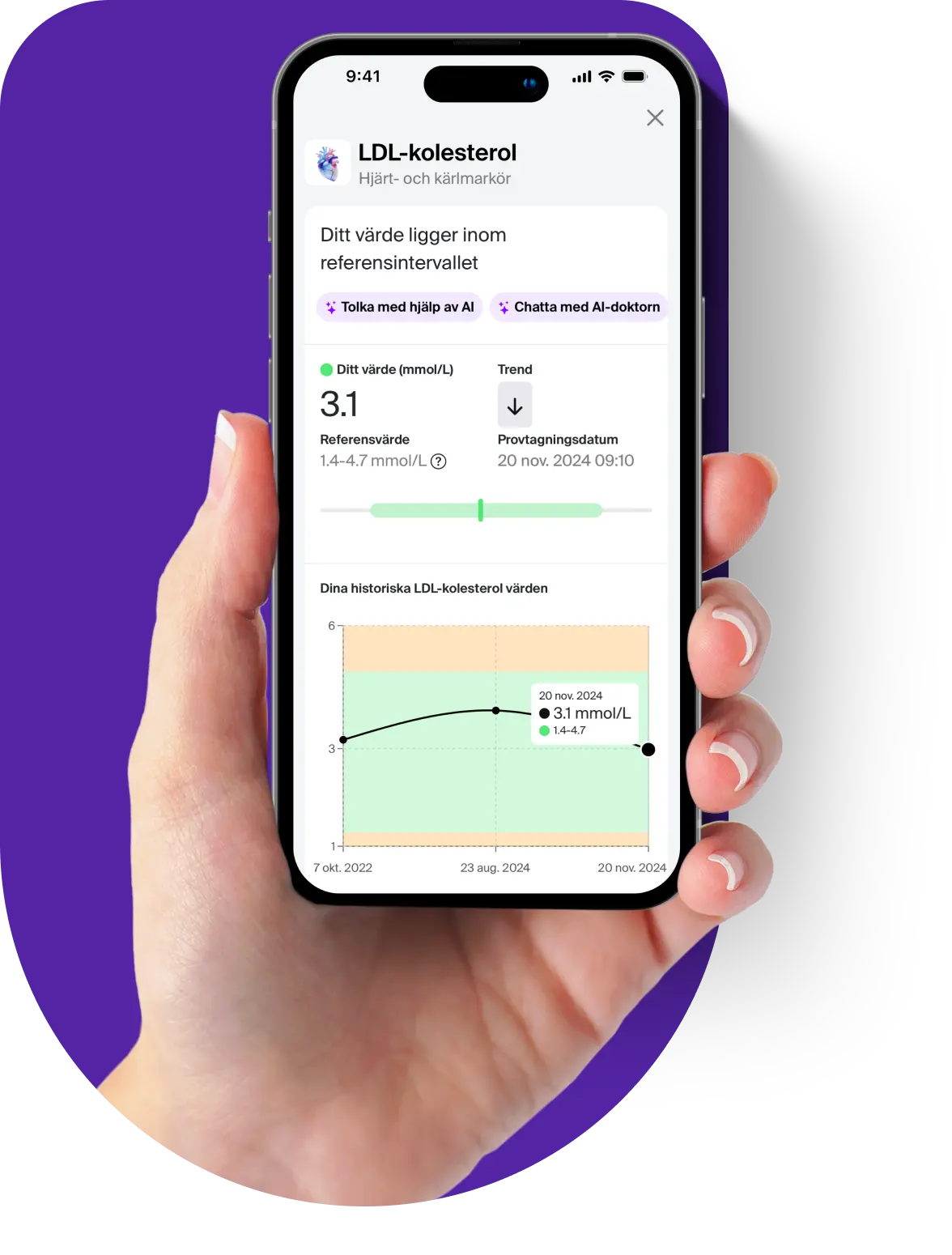Hemoglobin mass MCH (Mean Corpuscular Hemoglobin) is a measure of the total amount of hemoglobin in the body. Hemoglobin, in turn, is a protein found in your red blood cells that carries oxygen from the lungs to the body's tissues.
The MCH test is performed to gain more insight into your hemoglobin level. In general, people with higher hemoglobin mass have a greater ability to deliver oxygen to tissues and may be less likely to become fatigued during physical activity. MCH is often a test performed in conjunction with a complete blood count, known as a "blood count." MCH measures the average amount of hemoglobin in each individual red blood cell.
Some reasons why you should consider ordering an MCH test.
- Detect and monitor anemia: The MCH test can help identify various types of anemia, including iron deficiency anemia and B12 deficiency anemia. Low MCH values can be an indication of insufficient hemoglobin production and therefore anemia.
- Evaluate blood disorders: Changes in MCH value may be linked to possible blood disorders and medical conditions, such as thalassemia or hemoglobinopathies.
- Optimize oxygen transport and energy levels: By knowing your MCH value, you can gain insight into your ability to deliver enough oxygen to tissues and thus optimize your oxygen transport and energy levels.
Low MCH value
If the MCH value is low, it means that each red blood cell contains a smaller amount of hemoglobin than normal, which can lead to a lack of oxygen in the tissues and thus fatigue and lack of energy.
Common causes of low MCH:
- Iron deficiency - the most common cause of low MCH
- Chronic disease anemia
- Blood loss, for example during menstruation or gastrointestinal bleeding
- Thalassemia or other hereditary blood diseases
High value of MCH
If the MCH value is elevated, it means that the red blood cells contain more hemoglobin than normal, which may be an indication of underlying diseases.
Common causes of high MCH:
- Deficiency of vitamin B12 or folic acid
- Liver or thyroid diseases
- Alcohol abuse
- Certain medications that affect blood formation
The B-ERC MCH blood test provides valuable information about the hemoglobin mass in the red blood cells and can help diagnose anemia and other blood diseases. Low MCH values may be an indication of iron deficiency or blood loss, while high MCH values may be linked to vitamin deficiency or other medical conditions.
The MCH test is often included in a blood count and can be an important part of a broader investigation in cases of fatigue, shortness of breath or other symptoms linked to the blood's oxygen-carrying capacity.

























